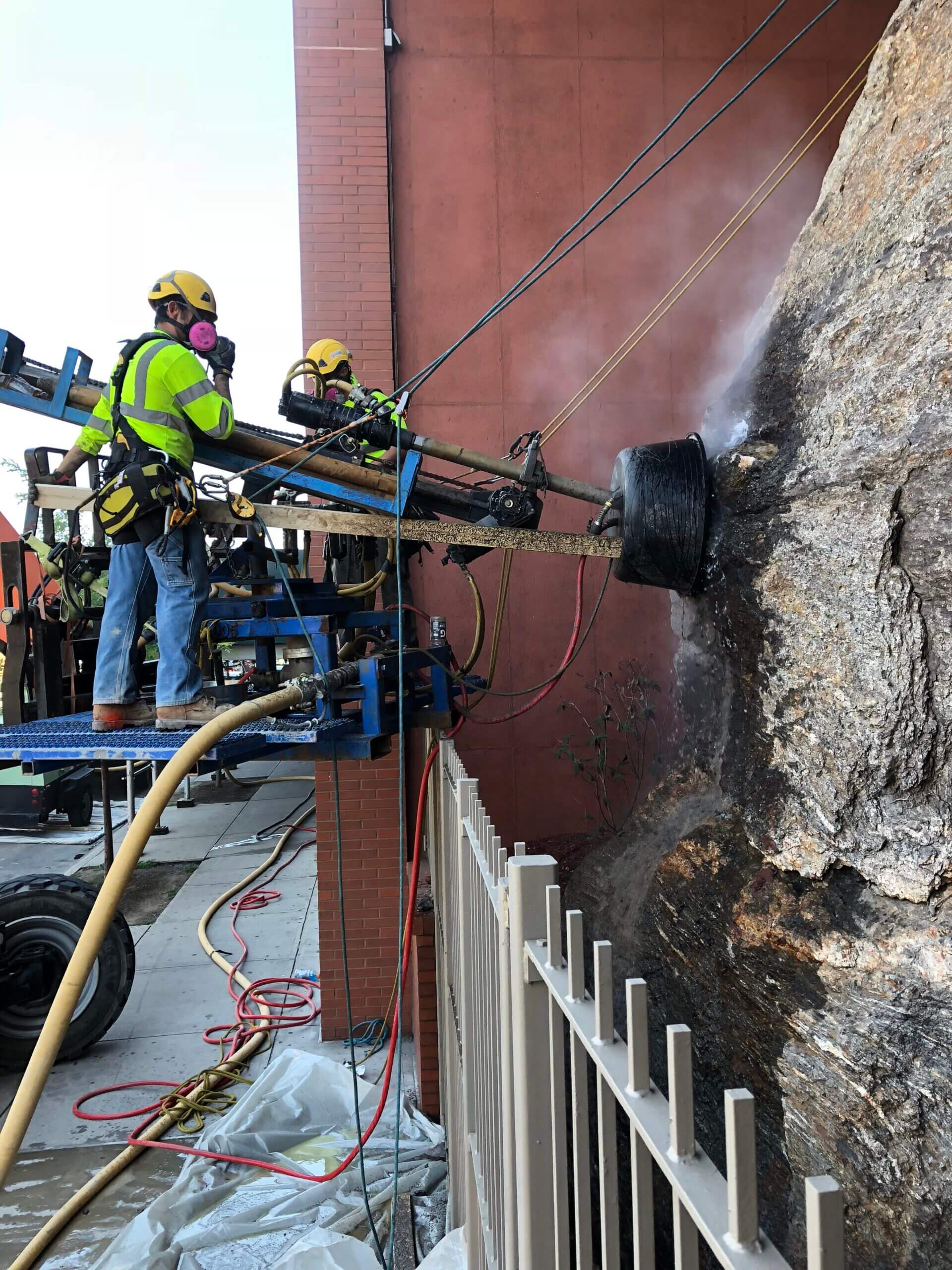Innovative Rock Anchors for Enhanced Building Support
Ingenious rock anchors have significantly end up being a focal point in building and construction design, particularly as tasks require greater security and effectiveness. As we consider the effects of smart sensing units and sustainable techniques, one must ask: exactly how will these developments redefine the future of building and construction support?
Advancement of Rock Anchors
The development of rock supports has significantly changed construction methods over the past century. At first, rock anchoring techniques were fundamental, depending on straightforward mechanical devices and primary materials. As design disciplines advanced, so did the understanding of geological problems and the need for reputable securing systems - Williams Anchors. The mid-20th century saw the introduction of high-strength steel tendons, which supplied boosted load-bearing capacities, enabling for even more enthusiastic construction jobs in tough surfaces.
In tandem with developments in products scientific research, the advancement of grouting strategies boosted the bond in between the support and bordering rock, bring about increased security and resilience. The combination of innovation into design and testing processes has actually caused more precise and reliable installment approaches, better maximizing efficiency. Computer modeling and simulations now allow engineers to forecast support habits under different conditions, improving security and dependability.
Furthermore, the growing focus on sustainability within building and construction methods has led to technologies in eco-friendly products and methods for rock anchoring. In general, the trip of rock supports reflects the construction sector's adaptation to both technical improvements and the enhancing intricacy of contemporary engineering obstacles.

Sorts Of Modern Rock Anchors
Modern rock supports been available in a variety of kinds, each developed to fulfill certain engineering needs and geological conditions. One of the most typical kinds include grouted supports, which involve putting a steel tendon right into a drilled opening and filling the area with grout to produce a strong bond with the bordering rock - Williams Anchors. These supports are commonly used in applications calling for high load capabilities
Another extensively utilized type is the mechanical support, which depends on mechanical gadgets to secure the anchor in position without the need for grouting. These supports are preferred in circumstances where prompt load-bearing capability is essential.
Furthermore, there are post-tensioned supports, which are installed tensioned to offer security to frameworks such as bridges and keeping wall surfaces. These supports help to combat tensile pressures acting upon the structure.
Benefits of Ingenious Layouts
Development in rock anchor style brings countless benefits that enhance building effectiveness and architectural honesty. Modern layouts utilize advanced materials and engineering methods to substantially boost load-bearing capacities. These cutting-edge supports are frequently constructed from high-strength steel or composite materials, which not only decrease weight however likewise improve resistance to rust, making sure durability and dependability in different environmental conditions.
Additionally, using computer-aided design (CAD) and finite component evaluation (FEA) permits specific modeling and screening of anchor performance under real-world conditions. This causes supports that can be customized to particular project requirements, maximizing their performance and lowering the requirement for over-engineering, which can be both cost and resource-intensive.

Study in Building
Real-world applications of innovative rock anchor designs show their transformative influence on building tasks. One noteworthy instance research study entails the construction of a skyscraper in a seismically active area. Engineers utilized progressed rock anchoring techniques that used high-strength products, ensuring the structure's security versus potential earthquakes. The supports were purposefully placed to improve lots distribution and reduce negotiation, inevitably leading to a much more durable structure.
Another significant example can be found in the growth of a transportation tunnel. Ingenious rock anchors were used to protect the tunnel walls, permitting deeper excavation without compromising safety. The implementation of grouted rock anchors offered increased see this page tensile strength, allowing workers to advance the project right away.
In a 3rd instance, a significant dam job integrated rock anchors to stabilize the embankment. Making use of corrosion-resistant products in the supports guaranteed long-term sturdiness, decreasing maintenance prices and boosting security standards.
These study show the effectiveness of innovative rock support styles in addressing intricate design challenges, underscoring their crucial function in modern building and construction methods. The successful end results highlight the requirement discover here for continued financial investment in advanced anchoring modern technologies to satisfy evolving building and construction demands.
Future Trends in Rock Anchoring
As building and construction demands advance, the future of rock anchoring is positioned for significant innovations that will boost safety and performance in various applications - Williams Anchors. Arising technologies, such as wise sensors and real-time tracking systems, are anticipated to play an important duty in the development of even more dependable securing solutions. These developments will certainly allow for constant analysis of anchor performance, making it possible for timely interventions and lessening threats associated with architectural honesty
Furthermore, the combination of lasting products and techniques is coming to be significantly vital in the construction industry. Future rock anchors might incorporate next environmentally friendly materials that decrease environmental impact while maintaining efficiency criteria. Improvements in materials science can lead to the growth of high-strength, light-weight anchors that streamline installment procedures and minimize labor expenses.

Conclusion
To conclude, ingenious rock supports represent a significant innovation in building assistance, resolving the difficulties postured by diverse geological problems. The development of modern-day designs, consisting of grouted and post-tensioned anchors, improves load-bearing capacities while promoting security. Integration of sophisticated modern technologies, such as computer-aided style and clever sensors, additionally maximizes performance and sustainability. Continued study and implementation of these advancements will undoubtedly shape the future of building techniques, guaranteeing effectiveness and ecological responsibility.
Comments on “Locate the Best Williams Anchors for Securing Foundations and Maintaining Wall Surfaces”